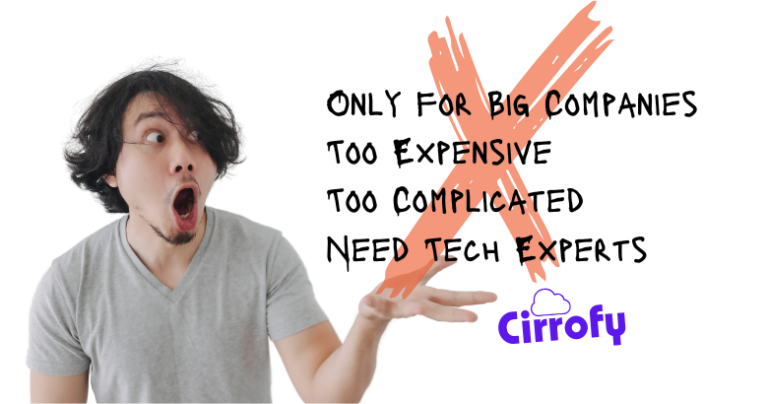Why Small Businesses Absolutely Need ERP to Crush the Competition
Imagine your small business is like a race car. You’re speeding down the track, trying to beat bigger competitors. But you’ve got one problem: your car is held together with duct tape. The tools and systems you’re using are patchwork, outdated, and slowing you down.
That’s where an ERP (Enterprise Resource Planning) system comes in. It’s like upgrading your race car to a precision-engineered machine that runs smoother, faster, and smarter.
But why do small businesses need ERP? Here’s the deal: ERP isn’t just for big companies anymore. It’s a secret weapon that small businesses are using to level the playing field—and in many cases, crush the competition. Let’s break it down and see how ERP can supercharge your business.
1. Small Businesses Face Big Challenges
Running a small business isn’t easy. You’re juggling everything—inventory, sales, invoices, payroll, and customer service—all at once. It’s like spinning plates, and it only gets harder as you grow.
Here are the struggles many small businesses face:
- Lack of Visibility: Data is scattered across tools, spreadsheets, and notebooks. It’s hard to see the big picture.
- Manual Processes: Too much time is wasted on repetitive tasks like data entry and tracking inventory.
- Missed Opportunities: Without real-time insights, you’re always reacting instead of planning ahead.
- Inefficiencies Add Up: Using multiple disconnected tools creates bottlenecks and mistakes.
Sound familiar? These pain points can make it tough to stay competitive. But with the right ERP system, you can eliminate those headaches and focus on growing your business.
2. What Makes ERP a Game-Changer for Small Businesses?
Why do small businesses need ERP? Because it’s the Swiss Army knife of business tools. ERP takes all those different processes—inventory, accounting, HR, sales—and brings them into one powerful system.
Key Benefits of ERP for Small Businesses
- Streamlined Operations
ERP eliminates the need for separate tools. Everything—from customer orders to financial reports—runs through a single platform. This reduces wasted time and effort. - Real-Time Insights
With ERP, you can track key metrics like sales, expenses, and inventory in real time. No more waiting for end-of-month reports or guessing where you stand. - Automation That Saves Time
Tasks like sending invoices, reordering inventory, or updating payroll are automated. This frees up your team to focus on higher-value activities. - Cost Savings
While ERP might feel like a big investment upfront, it actually reduces costs by increasing efficiency and preventing mistakes. - Scalability
As your business grows, your ERP grows with you. Add new features, users, or integrations without skipping a beat.
3. How ERP Levels the Playing Field Against Big Competitors
Here’s the harsh truth: Big companies have access to more resources, larger teams, and fancier tools. But ERP gives small businesses a fighting chance.
How ERP Helps Small Businesses Compete
- Better Customer Service: ERP centralizes customer data, helping you respond faster and deliver personalized service.
- Faster Decision-Making: Real-time insights let you act quickly, whether it’s capitalizing on a trend or solving an issue.
- Improved Efficiency: With fewer mistakes and less wasted time, you can do more with fewer resources.
- Data-Driven Strategies: ERP systems provide analytics and forecasting tools that help you make smarter decisions.
Big businesses might have deeper pockets, but ERP gives you the agility to outmaneuver them.
4. Signs Your Small Business Needs ERP Right Now
How do you know it’s time to invest in an ERP? Look out for these red flags:
- Your Systems Don’t Talk to Each Other: If your accounting software, inventory tracker, and CRM are all disconnected, you’re wasting time manually transferring data.
- You’re Growing Fast: As your business scales, the cracks in your current systems will start to show. ERP ensures you can handle growth without chaos.
- You’re Spending Too Much Time on Admin Work: Repetitive tasks like invoicing or inventory tracking can be automated with ERP, saving hours every week.
- You Struggle with Reporting: If gathering data for reports feels like pulling teeth, ERP gives you instant access to the numbers you need.
If any of these sound familiar, it’s time to consider ERP.
5. But What About the Cost? Is ERP Worth It?
Let’s address the elephant in the room: ERP systems aren’t free. But the value they bring far outweighs the cost.
Here’s why ERP is worth it:
- Fewer Errors, Fewer Losses: Mistakes in inventory or accounting can cost you big. ERP prevents them.
- Time is Money: Automating tasks saves your team time, which translates to cost savings.
- Long-Term Growth: ERP isn’t just an expense; it’s an investment in your future. It scales with your business, so you won’t outgrow it.
If you’re still worried about the upfront investment, look for SaaS ERP solutions. These are subscription-based and often more affordable for small businesses.
6. The Risk of Staying Stuck Without ERP
Here’s the harsh reality: Not adopting ERP can hold your business back.
- You’ll Fall Behind Competitors: Your competitors are already adopting smarter systems. Without ERP, you risk getting left in the dust.
- You’ll Waste Resources: Disconnected tools and manual processes drain time and money.
- You’ll Miss Growth Opportunities: Without real-time insights, it’s harder to plan, adapt, and seize opportunities.
Staying stuck with outdated systems isn’t just inconvenient—it’s risky.
Case Study: A Small Business That Took the Leap
Let’s look at an example. Imagine a small retail business, “Local Goods Co.”
Before ERP:
- They used one tool for sales, another for inventory, and spreadsheets for accounting.
- Inventory mistakes led to stockouts and lost sales.
- Generating financial reports took hours.
After ERP:
- All systems were integrated, and inventory updates happened automatically.
- They could track sales trends in real time and reorder stock before running out.
- Reporting took minutes, not hours.
The result? Local Goods Co. saved time, reduced errors, and grew their revenue by 25% in one year.
The Final Word: ERP is a Small Business Superpower
If you’re running a small business and wondering how to stay competitive, the answer is clear: ERP.
Why do small businesses need ERP? Because it simplifies operations, saves money, and helps you outsmart the competition. With real-time insights, automated processes, and a scalable system, ERP isn’t just a tool—it’s a growth engine.
The choice is yours: Stick with duct-taped systems that hold you back, or invest in ERP and unlock your full potential. The right ERP system can take your small business from good to unstoppable.
Are you ready to crush the competition? Then it’s time to make the leap.

